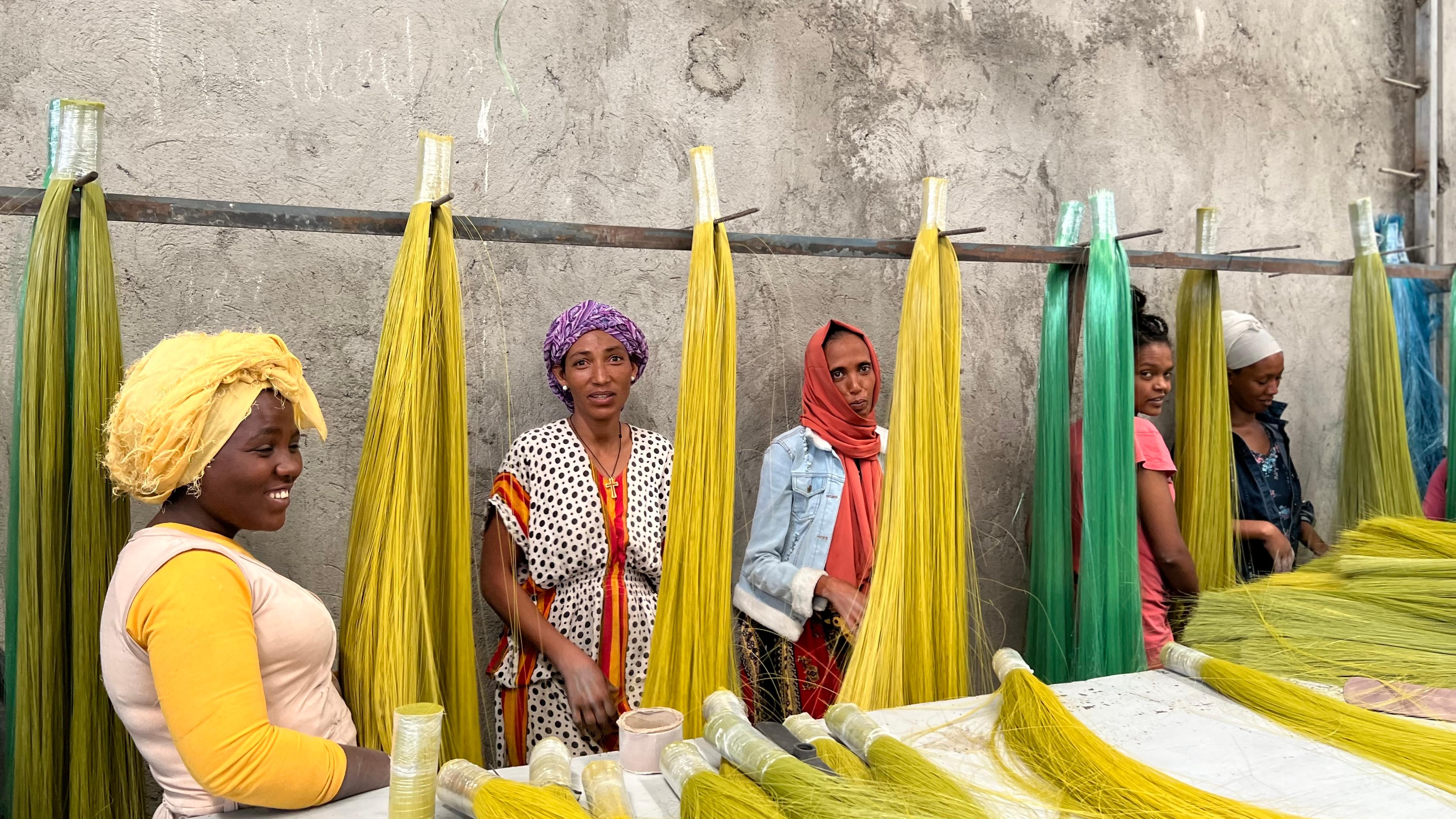Waste 4 Value
 © BEWI, NCA
© BEWI, NCAWhat is the challenge?
The Waste 4 Value project addresses the significant issue of waste management in various cities and refugee camps in Ethiopia. These areas generate large amounts of waste, including recyclable materials like PET plastic, paper, and metals. Due to underfunded waste collection services and the absence of recycling facilities, waste often ends up being burned or buried, leading to environmental pollution and health risks.
What is innovative about the project?
The Waste 4 Value model is innovative in its approach to waste management. Norwegian Church Aid (NCA) collaborates with local NGOs and authorities to establish small waste management businesses owned by marginalized groups. These businesses collect, sort, and sell waste materials to recycling factories, which process the waste into new products. This model creates value at each stage and shifts practices from burning or burying waste to sustainable management. Through advocacy and awareness, the model reduces stigma around waste collection, decreases environmental pollution, and lowers emissions. It enables people to earn incomes from green jobs while providing recycling companies with necessary materials.
What are the expected outcomes?
Since 2019, NCA has developed the Waste 4 Value model in Ethiopia, promoting a circular local economy while creating income, green jobs, and improved social conditions. This model, tested in various cities and refugee camps in Ethiopia, has shown positive impacts. With support from Innovation Norway, the Kavli Foundation, and Bewi, NCA is scaling up the model to more areas in Ethiopia and other countries where they operate.
The Waste 4 Value project aims to create financially sustainable small businesses within 1-2 years, allowing NCA and partners to exit and move on to new locations to foster new value chain setups. The project is expected to reduce environmental pollution, lower emissions, and provide economic opportunities for marginalized groups. By promoting sustainable waste management practices, the project will contribute to improved environmental health and social impact.
Who are the project partners?
The project is led by NCA in partnership with:
PETCO (Ethiopia) is a non-profit organization which represents the Ethiopian PET plastic industry's joint effort to self-regulatethe recycling of post-consumer PET, Tamira For Social Development andPak Mission Society.